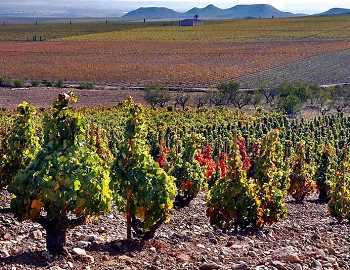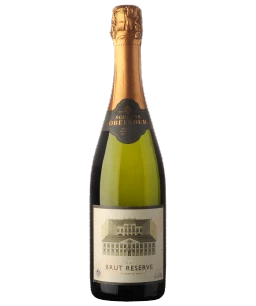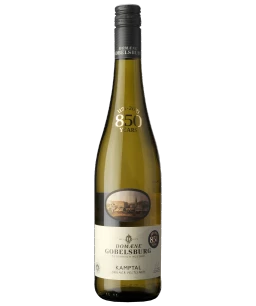Weingut Schloss Gobelsburg
The first written evidence of Schloss Gobelsburg dates from 1074, but it was in 1171 that the Cistercian monks from the Zwettl monastery obtained the first vineyards at Heiligenstein and at Gaisberg in the Kamptal. Visitors entering the baroque-style complex built on a slight mound sense this tradition, this spirit, this experience accumulated over the centuries. The view takes in all the surroundings, from the village of Gobelsburg to the vine-covered hills of Heiligenstein. Inside, near the parish church where couples say yes for life, when the weather is pleasant, the pretty and romantic garden invites all to rest for a while.
Grüner Veltliner and Riesling cover most of the countryside, while Zweigelt, Pinot Noir, St. Laurent and Merlot occupy about a quarter of the surface. Production guidelines are strict, and the winegrowing has adapted to the latest developments while still respecting the methods practiced by the monks. Wines are vinified and aged exceptionally gently. The Gobelsburg team tries to obtain authentic wines which respect and express their origin’s personality and individuality. Michael Moosbrugger’s ingeniously simple idea illustrates this quest for progress: casks on wheels use gravity to avoid damaging the wine through pumping. The casks are made from wood from nearby Manhartsberg and not from popular French or American oak.
Sparkling wines from Weingut Schloss Gobelsburg
White wines from Weingut Schloss Gobelsburg
Rosé wines from Weingut Schloss Gobelsburg
Red wines from Weingut Schloss Gobelsburg
Sweet wines from Weingut Schloss Gobelsburg
Delicatessen from Weingut Schloss Gobelsburg
from Weingut Schloss Gobelsburg
The association of Österreichische Traditionsweingüter (traditional Austrian estates), of which Schloss Gobelsburg is a member, pays particular attention to respecting the special attributes of each plot. Their individual characteristics give the wine a particular tone, and the nuances of soil and exposure can be expressed. The best example of this classification can be found in the 'Erste Lagen' which deliver a great complexity when aged (Heiligenstein, Lamm and Grub for example) delivering the subtleties specific to each individuality. That's when we see the meaning of the Cistercian proverb: “He who drinks good wine sees God”.
Producer

Weingut Nicolussi-Leck
The Kreithof, as the ancestral estate is known, is located near the idyllic Lake Caldaro in South Tyrol (Alto Adige) and has been cultivated by the Nicolussi-Leck family since 1915. Standing guard over it are the medieval ruins of Leuchtenburg Castle, which – like the estate – dates back to the 13th century and was presumably also associated with nearby Laimburg Castle in the Etsch Valley.

Bodega Palacios Remondo
He was born 'at home', right above his father's bodega – Álvaro Palacios, Spains star vintner. The scent of wine and barrels must have been lying in the air and thus dictated his further life. He studied oenology in Bordeaux and gathered professional experience at the Château Pétrus, and in London, Dublin, and California. Today, he owns vines in the Priorat county, in Bierzo, and at home in the Rioja, and proves his extraordinary talent with premium wines year after year.

Alvaro Palacios, S.L.
Álvaro Palacios was only 25 years old when he moved to the lonely Priorat in 1989. He left his parents’ vineyard in Rioja (Palacios Remondo) behind, which had grown too small for him. He joined forces with a group of friends to reawaken the sleeping beauty of the Priorat, which the prior inhabitants had mostly abandoned in search of a better and easier life in the cities.



















